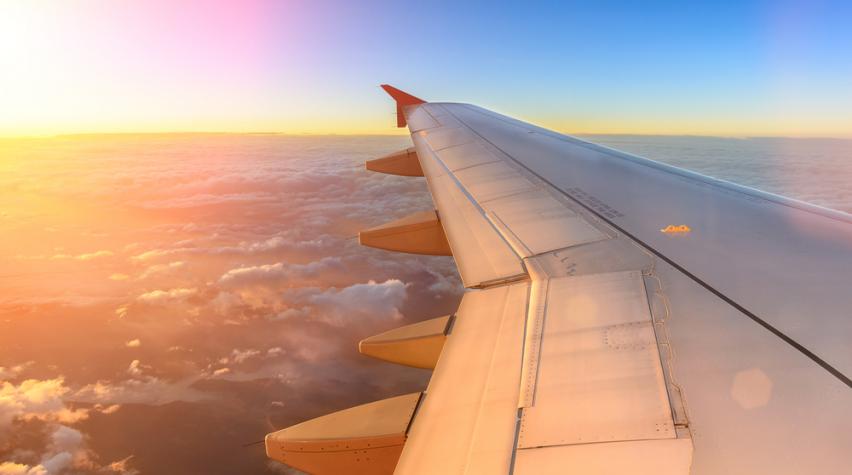
Preparing for an international business trip can be much more stressful than a domestic trip. Along with arranging an itinerary, packing your essentials, and coordinating your flights and hotels, you also need to worry about being jet lagged, maintaining proper etiquette, and acquiring the proper visas and other documents needed for travel.
When you travel abroad for business, you are essentially an ambassador, representing both yourself and your organization. You run the risk of appearing naïve, or offending the people you want to impress, without the correct preparation.
However, understanding another country’s culture goes much deeper than learning its tipping practices. Even a simple smile during a greeting, an ingrained American custom, can make you seem fake or artificial to people from some countries.
Follow the helpful tips below to ensure your next international trip is a success.
Don’t wait until the last minute to plan
If this is your first time traveling out of the country, make your travel plans at least two months in advance to give yourself enough time to gather the necessary travel documents. If you need to apply for or renew your passport, the routine processing time in the U.S. can be up to six weeks. You may also need to obtain visas if you are traveling to certain countries.
It’s important to plan your travel well in advance because you may need to visit your doctor to receive specialized vaccines or prescription pills — depending on where you are going — or ensure you are up-to-date on routine vacciations. For example, the U.S. Centers for Disease Control and Prevention (CDC) recommends you receive the typhoid vaccine and antimalaria pills if you are traveling to certain African and South American countries.
Do travel smart
Before you leave, check online for government-issued travel warnings and safety alerts. Travel advisories are released for various reasons, including terrorism and wars, natural disasters, political unrest, and health epidemics.
When flying, buy food before getting on the plane so that you have a wider and healthier selection, advises Gabriel Levesque-Tremblay, an engineering specialist for the Society for Biological Engineering (SBE) and a seasoned world traveler. Always bring a book with you on the flight, because not every airline provides in-flight entertainment. “Finally, a must: Be nice to the flight attendant, because you never know if you will need them,” he notes.
Bring chargers for your cell phone and electronic devices, and ensure you have the proper adapter for your destination country. Contact your cell phone and credit card carriers before you leave to clarify the options you have — and any fees you might incur — for international usage.
Leave a copy of your itinerary with a trusted coworker or family member so that they know where you will be at all times, in case of emergency. For your own personal safety, make sure you know where the closest embassy or consulate is located. Always have a contingency plan — where will you go if you require evacuation or medical assistance?
Don’t be late
“Always plan to arrive one day early to cope with jet lag,” says Levesque-Tremblay. Planning an early flight to your desired destination will also give you a sense of security if your flight is delayed or you run into unexpected problems along the way.
After you arrive, show respect for your hosts by ensuring that you are on time to all of your scheduled meetings. “Punctuality is the politeness of kings — always be on time,” says Mohammed Alyanbaawi, a process engineer at Saudi Aramco and the Publications Subcommittee Chair for AIChE’s Young Professionals Committee (YPC).
Do understand the local customs
“Cultural mistakes are common. Do know where you are traveling to,” says Alyanbaawi. Brush up on the proper use of names and titles, and know who the decisionmakers of rank are when conducting a meeting. Check the normal workday and business hours to avoid scheduling anything too early or during lunch.
“Learn at least the language basics of the country that you are traveling to, for example, how to greet,” advises Alyanbaawi. Greeting customs tend to differ greatly, and you don’t want to offend your hosts right off the bat. Lucy Alexander, an engineering specialist for the Institute for Sustainability (IfS), adds: “Greeting is the first impression. I hate coming off as oblivious to the norms of the new place — or ignorant or rude — by only following American customs.”
“Understand the norm of the country,” advises Alexander, who has lived and worked overseas in the past. “For example, in Spain, my boss and I kissed on two cheeks when we met, but post-first-meeting we greeted each other the way that Westerners do,” she says. “Understand how to follow customs — for example, dressing appropriately in a conservative country — and the implication of not following customs — say, extending a hand very quickly and obviously to indicate you don’t want to be kissed.”
“I think being well informed assures you show respect to others and feel more comfortable, but that requires thorough research sometimes,” says Alexander. Make sure you do your homework before you travel, and don’t be afraid to ask for advice from others who have traveled to the country you are visiting.
This article originally appeared in the YPOV (Young Professionals Point of View) column in the July 2016 issue of CEP Magazine.


